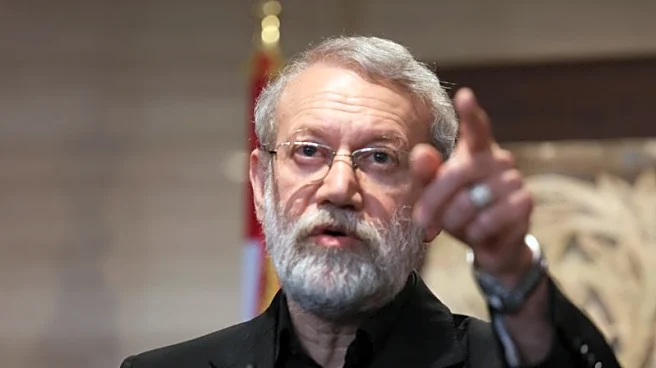Rapid Read • 8 min read
The Trump administration has significantly increased the military's involvement in immigration operations along the U.S.-Mexico border. This includes designating large areas as militarized zones, allowing U.S. troops to apprehend immigrants and enforce additional criminal charges. The military presence has tripled to 7,600 troops, covering one-third of the southern border. This move has sparked debates over the military's role in civilian law enforcement, traditionally managed by agencies like the U.S. Border Patrol. The administration's strategy aims to deter illegal crossings, which have reached a 60-year low, by deploying troops in high-traffic areas and remote terrains.
AD
The expanded military role at the border represents a significant shift in U.S. immigration policy, raising concerns about the militarization of border enforcement. This approach may impact U.S. relations with neighboring countries and influence domestic debates on immigration policy. The strategy could also affect the military's traditional role and its relationship with civilian law enforcement agencies. Critics argue that this could lead to potential legal and ethical issues, particularly concerning the Posse Comitatus Act, which limits military involvement in domestic law enforcement.
The Trump administration's strategy may face legal challenges and political opposition, especially concerning the use of military forces in civilian law enforcement roles. The administration plans to continue its efforts to secure the border, potentially leading to further militarization and increased tensions with immigrant communities and advocacy groups. The outcome of these policies could influence future immigration reforms and the role of the military in domestic affairs.
The militarization of the border raises ethical and legal questions about the balance between national security and civil liberties. The use of military forces in immigration enforcement could set a precedent for future administrations, potentially altering the traditional separation between military and civilian roles in law enforcement. This development may also impact the perception of the U.S. military both domestically and internationally.
AD
More Stories You Might Enjoy












